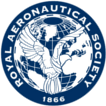Autumn 2011 Flight Simulation Conference
CALL FOR PAPERS - The Contribution of Flight Simulation to Aviation Safety
Flight Simulation’s broad role in developing, maintaining and enhancing flight safety is well recognised, but have advances in simulation technology and capability been matched by corresponding improvements in the way we conduct training?
Today’s environment is one of increased cockpit automation, airspace congestion, ultra long haul operations, enhanced flight envelope protection and arguably reduced levels of actual manual flying experience in the new generation of flight crews. The levelling off of hitherto falling accident rates, and the changing balance of the causal factors behind them, illustrated by a number of recent highly publicised accidents and incidents, suggest that there are areas for improvement, and that we must continue to strive to further improve our safety record.
The Royal Aeronautical Society Flight Simulation Group has recognised this, and for the past 5 years has overseen several international, multi-disciplinary study groups. The latest one of these is the International Committee for Aviation Training in Extended Envelopes (ICATEE). Its objective is to look at all aspects of live and synthetic training for anticipating, recognising, avoiding, and recovering from unusual attitudes and flight situations, aircraft upset, and loss of control in flight. ICATEE will bring together the best practice in current education, flight instruction and training, updated by the latest research and a rigorous methodology.
Additionally, the IATA International Training and Qualification Initiative (ITQI) promises improvements in flight crew knowledge, skills and attitudes and hence safety through evidence-based competency training regimes. These have far reaching implications on the way flight crew training is conducted, from ab-initio through to type rating and recurrent training, including instructional methods and standards.
While both ICATEE and ITQI are framed around civil large aircraft training and safety requirements, they have the potential to influence military training regimes, which increasingly rely on simulation to maintain standards and mission readiness. At the other end of the spectrum, low cost FSTDs, and new digital interactive media integrated into educational and training simulations, are increasingly being used to address the comparatively poor safety record of General Aviation (GA), both fixed- and rotary-wing. In other aspects of simulator-based training, advances in technology and functionality offer other benefits which can be harnessed to address more specific safety issues.
The conference will principally examine how all these initiatives link together through the use of flight simulation. A significant part of the Conference will be dedicated to the detailed reporting of both the Technical and Training sub-groups of the ICATEE. The sessions will address the approach taken to analyse the training requirements and to develop the rationale for a suitable range of live and simulator-based education, training, and instructional courseware. The Technical subgroup will present its recommendations for data collection and validation in support of enhanced simulator modelling and cueing systems. Papers are also being invited from the IATA ITQI team.
This Royal Aeronautical Society Flight Simulation Conference also invites papers on other safety related issues, in addition to IATA ITQI and ICATEE, such as:
- Simulator technological improvements to meet the safety-driven training and instructional challenges
- Low cost simulation and its potential contribution to safety
- What does GA – fixed wing and helicopters - need from simulation?
- How can flight simulation make a significant reduction in rotary wing accident rates?
- Instructor Qualification and Accreditation
- Human Factors and the Psychological Aspects of Simulator-based training.
- The Live/Synthetic Balance
- Leveraging the next generation in the gaming industry to enhance mission rehearsal training
- New Electronic and Distributed Media, such as games, Social Networks, and the iPad, and their implications for Training and Safety
Full details on how to submit an abstract for the Autumn 2011 Flight Simulation Conference can be found here.
The dealine for received abstracts is Thursday 31st March 2011.
Do you know somebody that this event would appeal to? Share it on your favourite services below-
Event venue: Royal Aeronautical Society Headquarters
Address: No.4 Hamilton Place, London, United Kingdom, W1J 7BQ - View Map Below -
Royal Aeronautical Society
-
Do more
-
FIND: out more about this and other Royal Aeronautical Society events
-
BROWSE: the full events calendar
-
REVIEW: a list of upcoming events
-
PURCHASE: proceedings from past Royal Aeronautical Society conferences
-
DOWNLOAD: or listen to the latest recordings of prestigious Royal Aeronautical Society lectures online for free
-
DOWNLOAD: sponsorship and exhibitor package information
-
DOWNLOAD: call for papers information here



